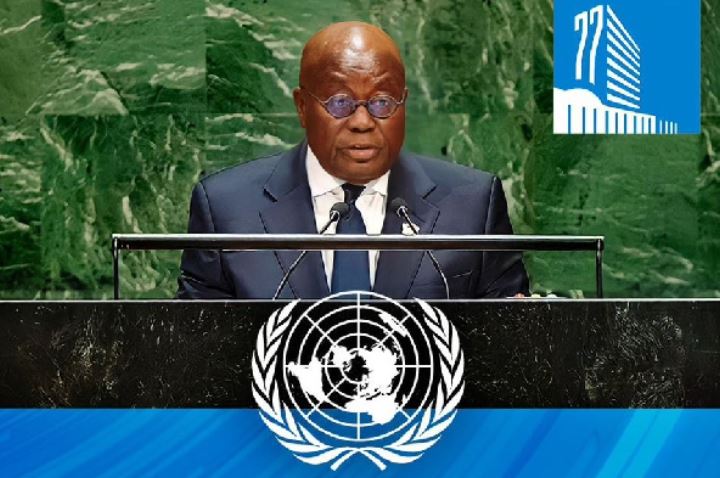The President of Ghana, Nana Addo Dankwa Akufo-Addo, has emphasized the negative effects of the Russia-Ukraine conflict on the world economy, particularly for African nations.
According to the president, the conflict, which broke out in February 2022, made an already bad position even worse for African economies, which were just beginning to recover from the COVID-19 pandemic’s consequences.
Akufo-Addo claimed that the conflict directly affected Africa, particularly in the field of food supplies, which in turn, significantly, caused inflation.
“Two years ago, our world came to a thundering halt, as we cowered from a health pandemic from an unknown, malicious virus, coupled with a devastating global economic pandemic. High budget deficits were no longer concerns of only developing nations.
“By 2021, COVID-19 had pushed Africa into the worst recession for half a century. A slump in productivity and revenues, increased pressures on spending and spiraling public debts confronted us without relent,” he submitted.
On the specific case of the Russian invasion, even though Moscow insists it was a military operation, Akufo-Addo stated: “As we grappled with these economic challenges, Russia’s invasion of Ukraine burst upon us, aggravating an already difficult situation.
“It is not just the dismay that we feel at seeing such deliberate devastation of cities and towns in Europe in the year 2022, we are feeling this war directly in our lives in Africa.
“Every bullet, every bomb, every shell that hits a target in Ukraine, hits our pockets and our economies in Africa. The economic turmoil is global with inflation as the number one enemy this year,” he added.
The government frequently explains that the COVID-19 epidemic, the ongoing Russia-Ukraine conflict, and the banking sector clean-up are to blame for the majority of the recent economic headwinds.
Living standards have risen, inflation has reached record levels, and rating agencies like S&P and Fitch have downgraded the economy as a result. This has made it difficult for the government to access the global financial market.
Additionally, the Cedi has been falling precipitously, forcing the Bank of Ghana to respond to the situation by raising its monetary policy rate.
The government first contacted the International Monetary Fund for an economic support program in July as a result of the economy’s deteriorating status.
Once an agreement on a program is achieved, Ghana is reportedly aiming for a sum of US$3 billion over three years from the International Monetary Fund. The latest loan request was for $2.5 billion, which was double the previous $1.5 billion goal set by the administration.
In order to get the funding in the first quarter of the following year, the government expects to wrap up negotiations by year’s end.





